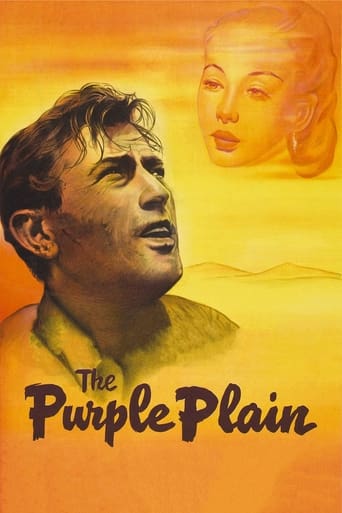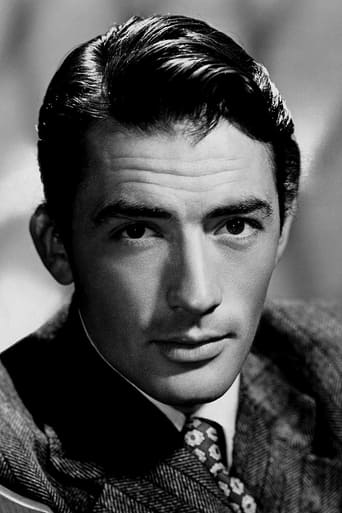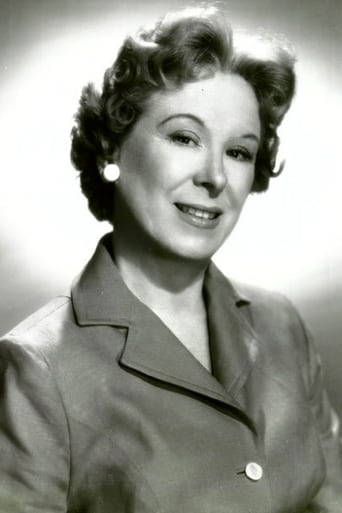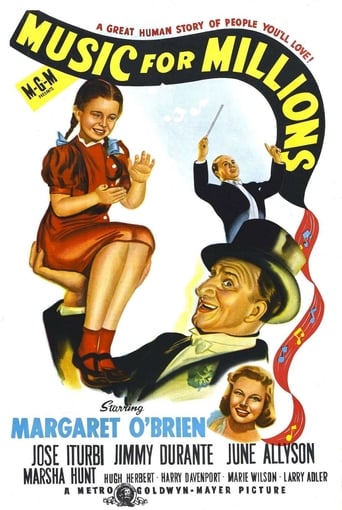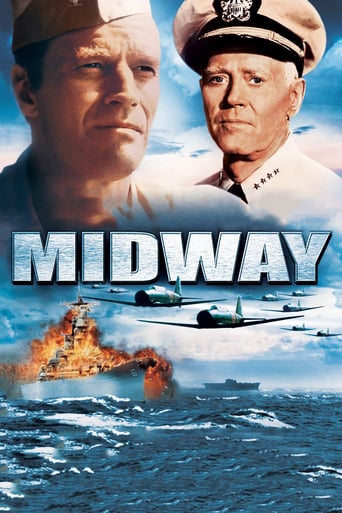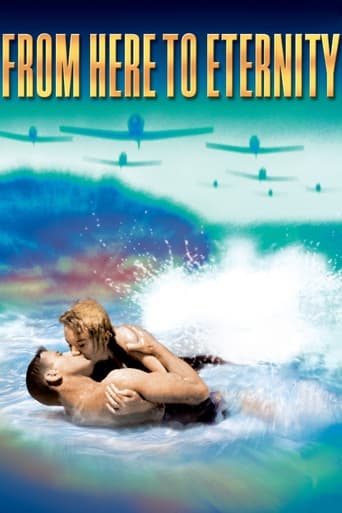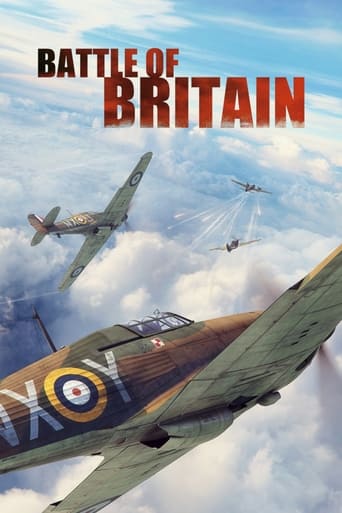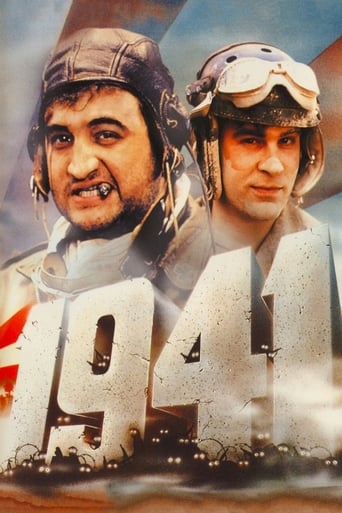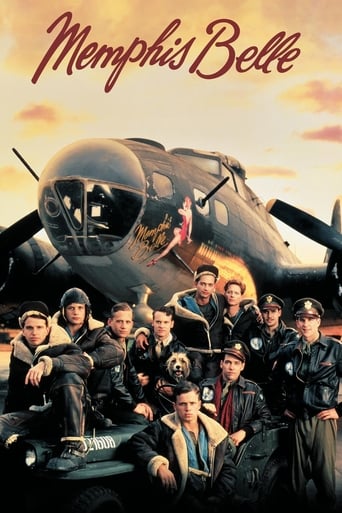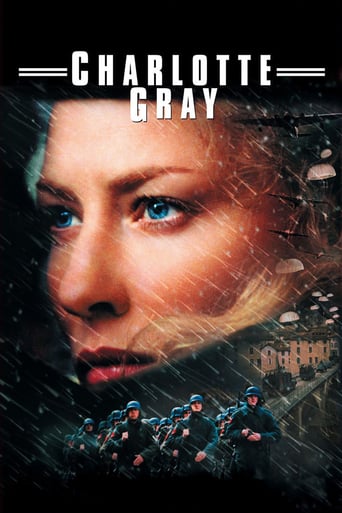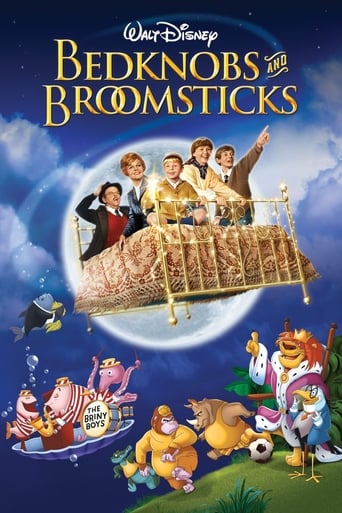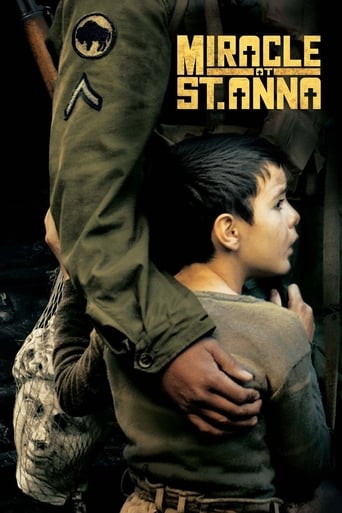The Purple Plain (1955)
A RAF airfield in Burma in 1945, during World War II. Canadian bomber pilot Bill Forrester is a bitter man who lives haunted by a tragic past. He has became a reckless warrior, and is feared by his comrades, who consider him a madman. Dr. Harris, the squadron physician, is determined to help him heal his tormented soul.
Watch Trailer
Cast


Similar titles
Reviews
I like the storyline of this show,it attract me so much
As Good As It Gets
A waste of 90 minutes of my life
The storyline feels a little thin and moth-eaten in parts but this sequel is plenty of fun.
Without Gregory Peck's wonderful acting—and handsomeness—The Purple Plain would be a pretty lousy movie. There's nothing particularly spectacular about the plot; it's a story of a shell-shocked pilot in WWII. There are a couple of tension-filled scenes where Greg and his fellow soldiers are up in their airplanes, but in general, the film felt like it didn't know what it wanted to be. Is it a romance, a war story, a survival adventure, or a racial lesson? There's a little of each element in the story, but not enough of the writing was invested to make any of them very believable. If you really love Gregory Peck, you can watch it, since he does do a very good job, putting extra nuances into his lines that other actors wouldn't. But if you're looking for a good war movie, this isn't it.DLM Warning: If you suffer from vertigo or dizzy spells, like my mom does, this movie is not your friend. Gregory Peck has a flashback, and the camera gets a little fuzzy and shaky, so be on the lookout. In other words, "Don't Look, Mom!"
Set in Burma during World War II, this curiously titled film follows the experiences of a Canadian bomber pilot with severe emotional and psychological issues. The film opens on a strong note with a violent air raid that turns out to be just a nightmarish delusion, and the film employs sound (especially accentuated audio as the protagonist tries to sleep) very well early on. Gregory Peck's lead performance is the film's best asset though; excessively sweating and visibly distressed throughout the whole first hour, Peck offers an excellent human anchor into this tale of overcoming wartime trauma. The second half of the movie is not quite as strong with Peck settling a down a bit too much and too easily after falling in love with a young local woman. Almost the entire second half of the movie also involves Peck finding safe passage from behind enemy lines after a plane crash, which is not quite as engaging to view with Peck's psychology forced to take a backseat to his quest to survive. Never to mind, the film still ends on a strong note and Peck has several good moments towards the end interacting and arguing with co-stars Maurice Denham and Lyndon Brook, who crashed with him. The film does a solid job dispersing flashbacks to Peck's past throughout too as we gradually learn just why he is so mentally scarred. As for the significance of the title though, it is anybody's guess.
There's hardly an actor of Hollywood's golden age - short of Jimmy Stewart - with more good will on his side than the glowingly decent, lethally handsome, stunningly stalwart Gregory Peck. Unfortunately, as I think this month's TCM bears out, the overpoweringly redoubtableness of his nature produced very few interesting movies. One striking exception however is the British produced THE PURPLE PLAIN of 1954. Here is the one Peck picture whose residual effect is different from all the others. The story adapted by Eric Ambler of an H.E. Bates novel is about a nerve-wracked, embittered, R.A.F. pilot reassigned to a Burmese mission in the war for reevaluation. During this time, he is restored somewhat to humanity through the good offices of a brilliant and good doctor (Bernard Lee), a spiritual lady (Brenda de Banzie) and most importantly, a lovely young Burmese nurse who works with the doctor at the hospital. Peck's character is called Forrester and the pivotal action of the movie is when he crashes a plane behind enemy Japanese lines. Two men are with him in the disaster. One is a dour medic named Blore (Maurice Denham) whom Forrester loses and another is a young navigator whom he bravely rescues along with himself. On the face of it all this conforms to the image of Peck the perfect. But just beneath the surface of the narrative resides the fairy tale of a man who loses his first love in an air raid in England (which he witnesses helplessly) and then has it restored to him through his meeting with the Burmese girl. Nothing could sound more corny but the treatment is anything but. The very last moments of THE PURPLE PLAIN are so perfectly judged, so uncannily rendered in their strangely erotic sense of deliverance that they take one's breath away. The "coming home" feeling of surrender at the end pulls one up short in a beautiful way that has to be experienced by the true lover of cinema - not laboriously described. With a haunting film score by John Veale, this is a most unusual production that deserves searching out. It doesn't deserve to be played at 3 in the morning but that's par for the course for pictures of this nature. It might be what contributes to their cult although THE PURPLE PLAIN isn't quite there yet as a cult item. It should be.
This is a good war film, unusual in that we never get to see the enemy. The cast is small but effective. A couple of minor points grated a little - as Marlonius has already mentioned, Peck really should have picked up Blore's hat for his heroic trek with the injured navigator; early on in the film it was made clear to us how extremely hot the climate was, with the men's tunics soaked in sweat. And after the crash Peck quickly sprouted some impressive bristles, which then all but disappeared.SPOILER: We saw Peck realising he had found water, then there was an immediate switch back to the airfield where the CO explained what happened next.It was almost as if the makers of the film had realised they were running out of time or money and decided to omit a few scenes.But all in all this is a convincing production that merits a highish ranking among war films (say in the second quartile).

